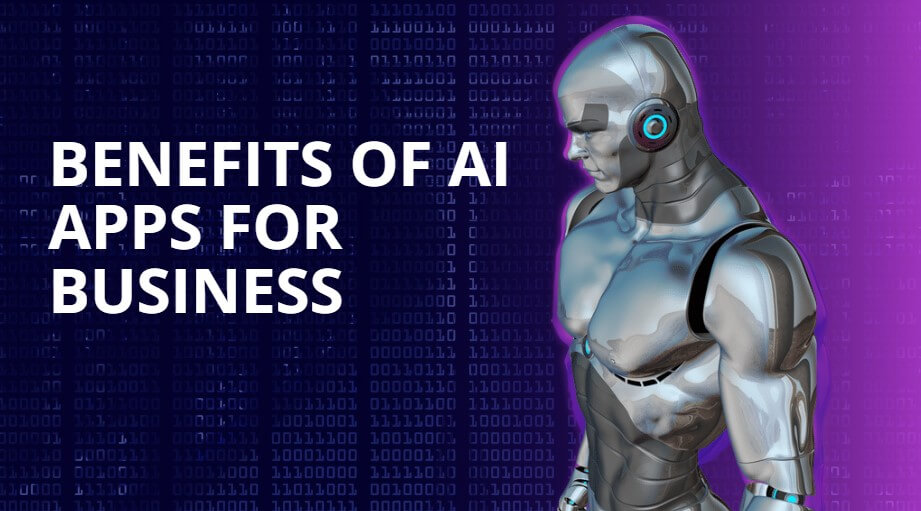In today’s digital landscape, businesses are constantly on the lookout for innovative solutions to streamline operations, boost productivity, and provide exceptional customer experiences. Artificial Intelligence (AI) applications have emerged as a game-changer in this quest, offering unmatched opportunities for growth and efficiency. This article will delve into the world of AI apps for business, exploring their functionalities, benefits, challenges, and future trends.
Understanding AI Apps: Definition and Functionality
AI apps, also referred to as artificial intelligence applications, are software programs specially designed to autonomously perform specific tasks, mimicking human intelligence. These applications utilize a variety of AI technologies like machine learning, natural language processing, computer vision, and predictive analytics to analyze data, make decisions, and execute actions without the need for human intervention. From basic chatbots and virtual assistants to advanced algorithms powering recommendation engines, fraud detection systems, and autonomous vehicles, AI apps come in a wide range of capabilities.
The Evolution of AI in Business
The integration of AI into business processes marks a significant shift in organizational strategies. Once considered a futuristic concept, AI has now become a practical tool driving real-world business outcomes. With advancements in computing power, data accessibility, and algorithm sophistication, the adoption of AI across various industries has accelerated. Today, AI is prevalent in sectors such as marketing, finance, healthcare, manufacturing, and customer service, revolutionizing how organizations function and compete globally.
Types of AI Apps and Their Applications
AI apps offer a diverse set of functionalities tailored to meet specific business requirements. Some common types of AI apps and their applications include:
- Chatbots and Virtual Assistants: Used for customer service, sales support, and process automation.
- Predictive Analytics: Applied for demand forecasting, inventory optimization, and customer behavior prediction.
- Recommendation Engines: Employed in e-commerce platforms, streaming services, and content personalization.
- Sentiment Analysis: Used in social media monitoring, brand management, and customer feedback analysis.
- Autonomous Systems: Utilized in autonomous vehicles, robotic process automation, and smart manufacturing.
Key Benefits of AI Apps for Business
The integration of AI apps offers numerous advantages for businesses striving to maintain a competitive edge. Some key benefits include:

- Enhanced Decision-Making: AI apps analyze vast amounts of data, providing actionable insights for informed decision-making.
- Increased Efficiency: Automation of repetitive tasks frees up resources for more strategic activities.
- Improved Customer Experience: Personalized interactions, predictive recommendations, and 24/7 support enhance customer satisfaction and loyalty.
- Cost Reduction: AI-driven automation reduces operational costs associated with manual labor.
- Competitive Advantage: Leveraging AI apps allows businesses to innovate faster and outperform competitors in the market.
Overcoming Challenges in Implementing AI Apps
While AI apps bring significant benefits, businesses may face challenges in their implementation. Some common challenges include:
- Data Quality and Accessibility: High-quality data is critical for AI algorithms, necessitating organizations to address data quality issues.
- Talent Acquisition and Training: Recruiting skilled AI professionals and providing ongoing training is essential for successful implementation.
- Regulatory Compliance: Adhering to data privacy regulations and ethical considerations is crucial.
- Integration Complexity: Seamless integration of AI apps with existing IT infrastructure requires careful planning.
- Return on Investment (ROI): Establishing clear metrics for evaluating the ROI of AI initiatives is vital for securing organizational support.
Selecting the Right AI Apps for Your Business Needs
Choosing the appropriate AI apps tailored to specific business requirements is key to successful implementation. Key considerations in selecting AI apps include:
- Business Objectives: Align AI initiatives with strategic goals for maximum impact.
- Scalability and Flexibility: Choose AI apps that can accommodate future growth and evolving business needs.
- Compatibility and Integration: Ensure seamless integration with existing systems for optimal efficiency.
- Vendor Reputation and Support: Partner with reputable vendors offering reliable products and ongoing support.
- Customization and Personalization: Look for AI apps that can be customized to meet unique business needs.
Integrating AI Apps into Business Processes
Integrating AI apps into existing business processes requires a systematic approach for seamless adoption. Key steps in the integration process include:
- Needs Assessment: Identify areas where AI apps can have the greatest impact and align with strategic objectives.
- Pilot Testing: Evaluate the feasibility and effectiveness of AI apps through pilot projects.
- Data Preparation: Clean and preprocess data for accurate AI model training.
- Deployment and Monitoring: Deploy AI apps and continuously refine models for improved performance.
- Change Management: Provide training and support for employees to facilitate AI app adoption.
Enhancing Customer Experience with AI Apps
AI apps play a crucial role in improving customer experience by providing personalized, intuitive interactions across touchpoints. Some ways AI apps can enhance customer experience include:
- Intelligent Chatbots: Offer instant assistance and resolve customer issues efficiently.
- Personalized Recommendations: Analyze customer data to offer tailored product recommendations.
- Predictive Customer Service: Predict customer needs and proactively address issues.
- Voice Assistants: Provide hands-free interactions for customer convenience.
Conclusion:
AI applications are transforming business operations, offering unmatched efficiency, innovation, and competitive advantage. By leveraging the benefits of AI apps and overcoming implementation challenges, businesses can drive success and achieve strategic objectives in today’s fast-paced digital landscape.
